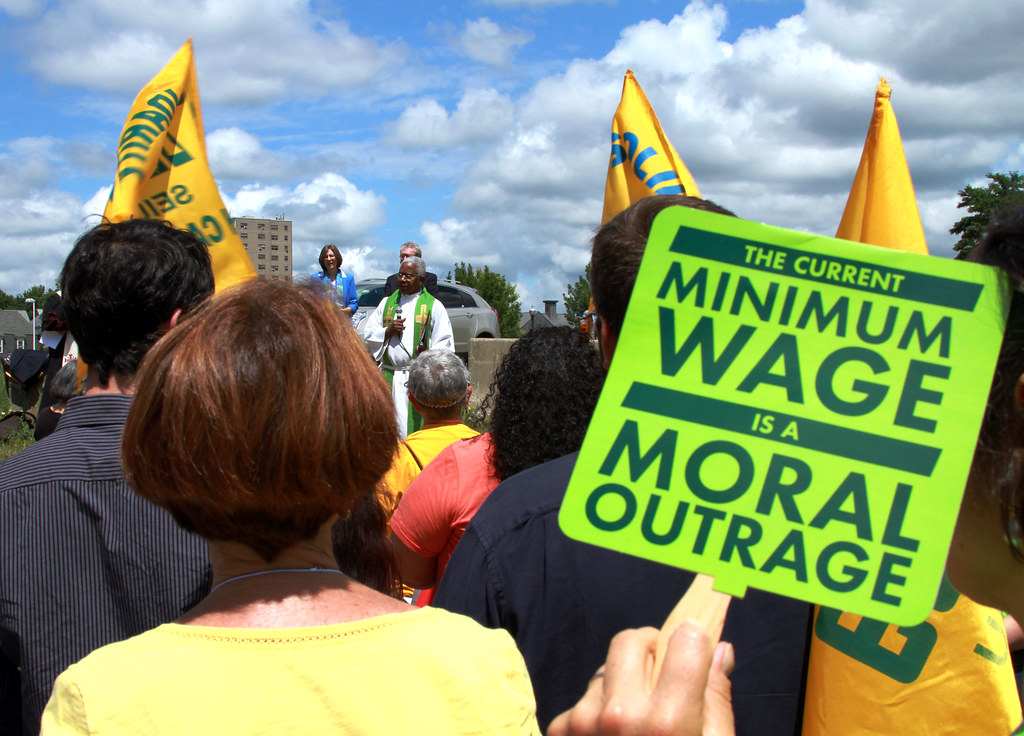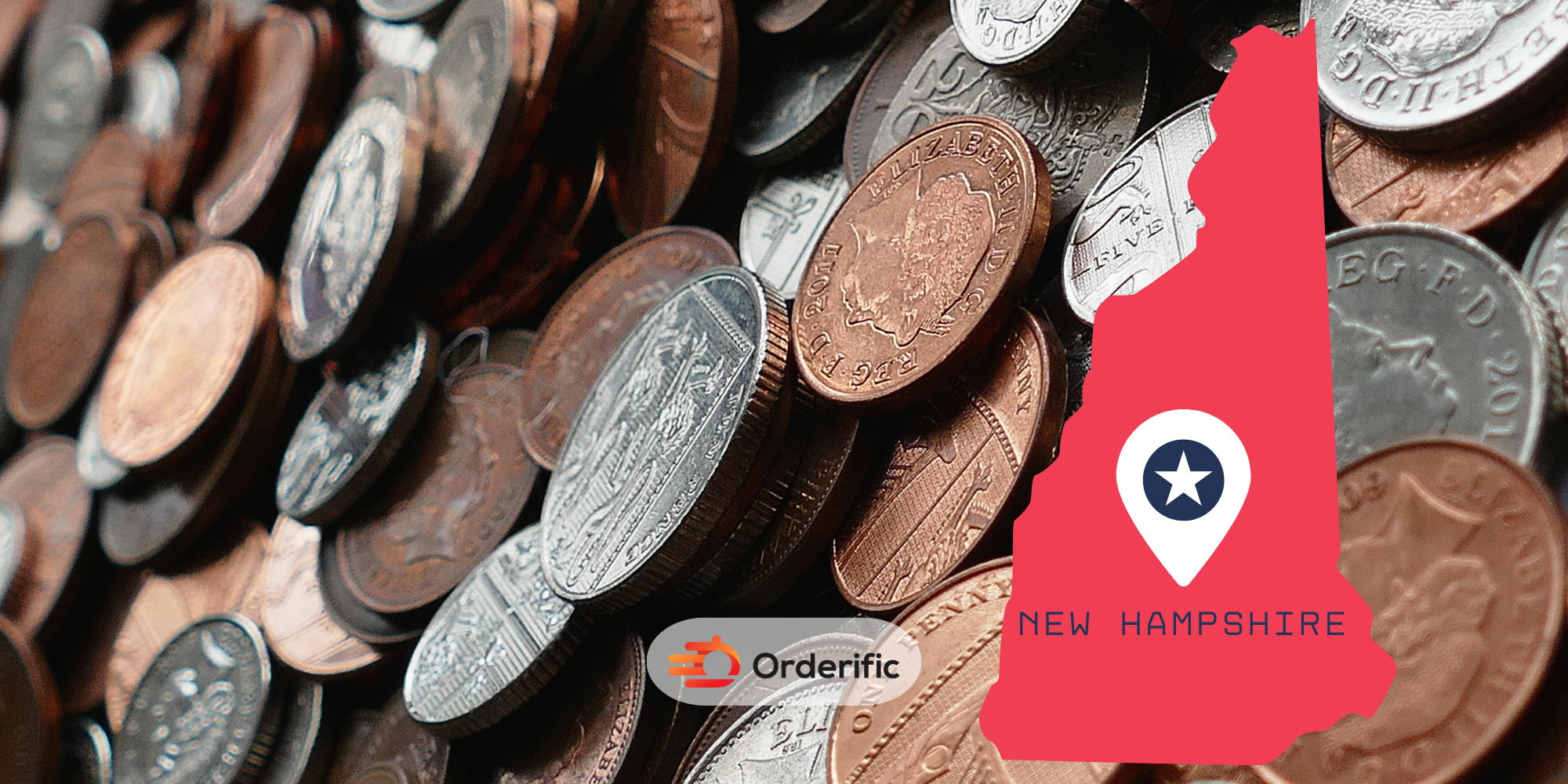The ongoing minimum wage debate stands as a focal point in the realms of politics and economics. It resonates profoundly due to its direct impact on workers’ financial stability. A surge of advocacy from various non-profit entities has fueled a fervent call among Virginia’s residents to elevate the state’s hourly wage. Delving into the potential transformation of Virginia’s minimum wage necessitates a comprehensive understanding of the implications.
In the forthcoming blog post, we will explore the rationales advocating for and opposing an increase in Virginia’s minimum wage. Moreover, we will dissect the underlying reasons that have propelled this matter to a paramount position of concern within the populace.
The Pros and Cons of Raising the Minimum Wage in Virginia
Pros:
- Encouraging Employee Loyalty: Elevating the minimum wage rate has the potential to foster greater employee loyalty, as improved compensation can serve as a motivating factor for workers to remain committed to their roles over an extended period.
- Empowering Lower-Income Households: A heightened minimum wage holds significant advantages for households with limited incomes. This group is more likely to channel a larger proportion of their earnings directly into local spending, thereby contributing to the invigoration of regional economies.
- Amplifying Consumer Expenditure and Efficiency: A raised state minimum wage possesses the capacity to amplify consumer spending through augmented disposable income. This surge in spending potential, in turn, could act as a catalyst for heightened worker efficiency and subsequently stimulate both individual productivity and broader economic
Cons:
- Escalates Labor Costs: Raising the minimum wage directly translates to higher labor costs for employers, potentially straining small businesses and leading to tough decisions about staffing and operations.
- Employment Reduction: Critics argue that an elevated minimum wage might result in job cuts, particularly in industries operating on narrow profit margins. Businesses could be compelled to downsize their workforce to manage increased wage expenses.
- Devaluation of Low-Skill and Inexperienced Workers: A higher minimum wage could diminish the competitive advantage of hiring workers with fewer skills or limited experience. Employers might opt for more skilled candidates to justify the increased labor costs.
- Possible Consumer Price Increases: Implementing a higher minimum wage might indirectly impact consumers, potentially leading to increased prices for goods and services. Businesses could pass on their elevated operational costs to consumers.
The Impact of Virginia’s Minimum Wage on Workers
In 2023, the Virginia department implemented a substantial minimum wage raise, lifting it from $7.25 to $12.00 per hour. This significant adjustment equates to an additional $40 weekly or $2,080 yearly for those at the minimum wage level.
The state’s strategy involves incremental annual increases, ultimately reaching $15 by January 1, 2026. This progressive wage enhancement is designed to support low-income workers and families substantially, aiming to narrow income gaps and enhance overall living standards.
Impacts include –
- Improved Income: The foremost impact is a direct income increase for workers currently earning the regular minimum wage. This extra income can provide financial relief, help cover basic necessities, and reduce reliance on government assistance programs.
- Enhanced Financial Security: The higher minimum wage can contribute to greater financial stability for workers. With increased earnings, individuals may find it easier to manage bills, save for emergencies, and plan for their future.
- Reduced Income Inequality: The wage increase can play a role in narrowing the income disparity gap. By lifting the wages of low-income workers, the overall distribution of earnings in the state may become more equitable.
- Employee Morale and Productivity: Workers who see an improvement in their compensation might experience boosted morale and motivation. This could lead to increased productivity and better job satisfaction.
The Impact of Virginia’s Minimum Wage on Businesses
As Virginias minimum wage undergoes a substantial increase, a chorus of concerns and observations from businesses has emerged. While some voices caution against potential negative consequences, there are also instances that demonstrate adaptation to the new wage landscape:
- Labor Cost Apprehensions: Several Virginia employers have voiced apprehensions about the impending minimum wage rise. They point to increased labor costs as a significant worry, potentially impacting profitability and budgeting. The prospect of coping with elevated operational expenses has sparked concerns about the viability of sustaining current staffing levels and business operations.
- Diverse Business Responses: Amid these concerns, some local businesses are already operating above the new minimum wage law. These proactive establishments are paying $12 an hour or more as they navigate a competitive labor market. This move not only highlights a commitment to attracting and retaining talent but also suggests the adaptability of businesses in responding to evolving wage dynamics.
- Ripple Effect and Worker Aspirations: Economists foresee a ripple effect stemming from the minimum wage increment. As the baseline wage rises, workers currently earning slightly above the previous standard minimum wage may begin seeking similar wage hikes. This trend underscores the interconnectedness of wage structures and the potential for broader wage adjustments throughout the workforce.
As Virginia’s economic landscape undergoes this transformation, the balance between the concerns of businesses (the employer) and the competitive forces shaping the labor market will play a pivotal role in defining the outcomes of the minimum wage increase.
Comparing Virginia’s Minimum Wage to Other States
As of 2023, Virginia’s hourly minimum wage rests at $12.00, placing the state at the 19th position in the U.S. hierarchy of minimum wage rates. Let’s now delve into a comparative overview of Virginia’s minimum wage when juxtaposed with that of other states:
States with higher minimum wage
- Washington: $15.74
- California: $15.50
- Massachusetts: $15.00
- Connecticut: $15.00
Lower minimum wage States
- Georgia: $7.25 (federal minimum wage)
- Wyoming: $7.25 (federal minimum wage)
- Texas: $7.25 (federal minimum wage)
States with Similar Minimum Wage
- Hawaii: $12.00
- Maryland: $13.25
- Rhode Island: $13.00
- Vermont: $13.18
It is important to note that the federal minimum wage has remained at $7.25 since 2009, and 12 states still adhere to the federal minimum.
Potential Future Changes to Virginia’s Minimum Wage

Virginia’s minimum wage is on a deliberate trajectory of incremental growth, slated to ascend annually until it achieves $15 by January 1, 2026. Beyond this milestone, the outlook becomes less defined, yet the prevailing course envisions gradual annual hikes leading to the $15 benchmark in early 2026. However, external factors could potentially modify this trajectory, leaving room for conjecture regarding potential proposals or enactments of further increases post-2026.
Conclusion
In summary, the matter of minimum wage is intricate and multi-dimensional, carrying substantial repercussions for employees, enterprises, and the wider economic landscape. Virginia’s gradual elevation of the minimum wage showcases the inherent advantages and complexities associated with this approach.
As the state continues its journey towards a $15 minimum wage by 2026, it offers valuable insights for other regions grappling with similar decisions. To keep up with the evolving dynamics of the labor market, continuous observation and analysis of Virginia’s journey will be crucial.
If you found this analysis helpful and are interested in exploring more economic trends and policies, we invite you to check out more blogs from Orderific. Our content provides deep dives into a variety of informative topics, offering insights and perspectives to help you stay informed.
FAQs
Q. What is the current minimum wage in Virginia?
Ans. The current minimum wage in Virginia is $12.00 per hour.
Q. When was the last time Virginia’s minimum wage was raised?
Ans. Virginia’s minimum wage was last raised in 2023.
Q. How does Virginia’s minimum wage compare to other states?
Ans. Virginia’s minimum wage is higher than federal minimum and some states, but lower compared to states like Washington, California, Massachusetts, and Connecticut.
Q. What industries in Virginia typically pay minimum wage?
Ans. Industries in Virginia typically paying minimum wage include retail, hospitality, and certain entry-level positions.
Q. What are the arguments for and against raising Virginia’s minimum wage?
Ans. The arguments for raising Virginia’s minimum wage include reduced poverty, increased worker morale, and reduced income inequality.













